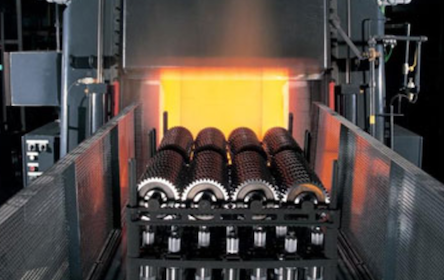Bodycote, the Macclesfield-based heat treatment and thermal processing giant, said in an AGM trading update its revenue rose 11% to £230 million in the four-month period from to April 30, 2022.
At the AGM, the vote to approve the firm’s remuneration policy received about 121 million votes in favor — but 37 million votes against.
“All resolutions presented to shareholders at today’s Annual General Meeting were passed with a majority of votes,” said Bodycote.
“However, the board recognises that some shareholders opposed resolution 14 (the approval of the remuneration policy).
“While the board is pleased that resolution 14 has received shareholder approval, it also acknowledges the views of the shareholders who opposed the resolution.
“The principal concern being that our remuneration policy now explicitly states that salary increases / pension contributions for executive directors are determined taking into account salary increases / pension contributions for the wider workforce in the country the executive director lives and / or works as well as the wider workforce across Western Europe including the UK.
“We contacted our major shareholders before the Annual General Meeting to confirm that this is not a change in how we remunerate our executive directors and rather clarifies existing practice, and to offer to discuss their views on this matter.
“We will continue to engage with our shareholders to ensure views are fully understood and report back within six months.”
In the trading update, Bodycote said: “Trading in the first three months of the year has been in line with expectations.
“However, April saw material shortages at customers driven by supply difficulties out of China.
“While we have no direct exposure to Russia or Ukraine, the war in Ukraine has also begun to impact our customers, exacerbating the volatility in demand for our services …
“Price increases and energy surcharges implemented to date are covering current cost inflation.
“As previously reported, there has been a short-term hit to profitability as the price increases have lagged the impact of cost inflation.
“In addition, high short-term volatility has eroded operational efficiency at our facilities.
“This, together with volatility in demand driven by material shortages at customers, and the temporary shuttering of our plants in China, has more than offset the positive impact of the incremental restructuring benefits delivered …
“While our performance in the first three months of the year has been in line with expectations, over recent weeks we have seen unprecedented volatility emerging in our workflows driven by material shortages at customers.
“This has resulted in a widening of the range of possible outcomes for this year.
“Beyond the short term, the outlook for the business remains positive as we anticipate a stronger automotive market in due course, continued good performance in our general industrial business, and further growth in civil aerospace revenues.”
